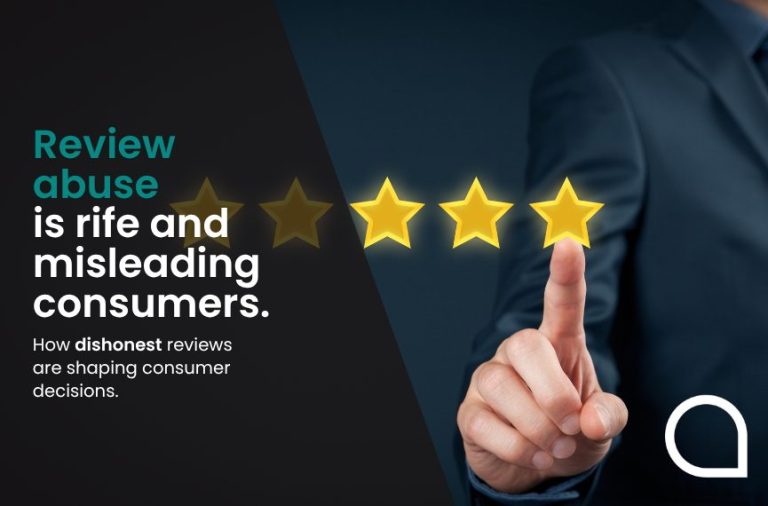
What are the penalties for AI misuse?
Embracing Artificial Intelligence (AI) whether for personal or professional use has clear advantages – and Google agrees. While it’s a common misconception that Google automatically
Has your content been missing the mark lately? Or maybe you’ve successfully increased your search engine position ranking, but your hard work isn’t resulting in quite as many click-throughs and conversions as you’d like. Whatever your reasoning for wanting to develop a more successful SEO content strategy, adopting the right process can help you to achieve a range of goals.
Thanks to years of invaluable SEO and content experience, we can help. Regardless of whether you want to attract more attention to your website, encourage more service enquiries or boost your conversion rates, developing a strong content strategy can be an important component of any business’ success.
Below, we explore what’s involved in the creation of a content strategy, the difference between a standard content strategy and an SEO content marketing strategy, and which strategy you should use to help smash those company targets!
Content strategies are, in their most basic form, a plan. These strategies allow you to map out how and when you want to use a variety of different content types, including written, audio and visual content. Ultimately, the aim of a content strategy is to help you achieve your business goals – no matter what they might be.
For example, you may want to drive brand awareness or receive more enquiries about your company’s services. This is where a content strategy comes into play to help readers to find and read your content, while also encouraging them to engage with your company in a way that boost sales or enquires.
Without a content strategy, it’s likely that you won’t attract the right attention from your target audience. This can not only affect your online visibility and the number of people that find and read your content (known as organic traffic), but can also have a negative effect on your conversion rates and enquiries, too. Without a content strategy, it can also be difficult to keep track of published content, leading to the creation of duplicate or irrelevant content.
The best content strategies are made up of five important components; they must be specific, measurable, attainable, relevant and time-bound. This allows them to be tracked and to have their efficacy accurately evaluated at certain intervals. Below, we explore these key components in more detail to help you develop the most effective content strategy for your business.
Doing your research and defining your brand’s particular goals is an essential part of creating a specific content strategy. Try asking yourself: what goals are your trying to accomplish with your content? What does your target audience look like and how can you tailor your content towards this demographic?
You should also consider how this content strategy can aid your marketing or wider business objectives as well as helping you to assess performance using key performance indicators (KPIs). All of this information is not only useful, but crucial when it comes to planning and implementing your content strategy.
In order to identify how successful your content strategy has been, it needs to measurable. This is where setting specific goals (as outlined above) can help. This could, for example, refer to a certain number of conversions, enquiries or calls you want to receive from a piece of content. Ensure you use accurate dates and precise figures to help track the performance of your content strategy.
For example, when developing a content strategy, you may want to see a 20% increase in the number of customers sending your business an enquiry or giving your team a call. You may even assign different goals to each piece of content, helping to create a well-rounded and comprehensive approach to your overall content strategy.
Always ensure it’s possible to achieve any goals you set for your content strategy. Setting unrealistic and unattainable goals for your content strategy is never a good idea and only increases your chances of falling short of these mammoth expectations. The target should be always be challenging, but still attainable as this helps to boost motivation and encourage hard work.
There’s no substitute for high-quality content. Ensuring this content is therefore relevant and useful is of the utmost importance if you want to connect with your target audience. Targeting popular topics and high volume keywords that hold little relevance for your business is likely to result in more organic traffic, but fewer conversions, a higher bounce rate and may even have a negative affect on your brand perception.
Every goal, no matter what it might be, needs a target date – a date that you’d like to achieve this goal by. Setting a deadline for a goal helps to promote motivation and encourages a sense of urgency to complete the work required to achieve the goal. With regards to a content strategy, this might be the number of content pieces you want to write and publish each week, month or quarterly period.
..
As mentioned previously, any good content strategy is both specific and measurable – two components that are essential for defining your business or marketing goals. Once you’ve decided whether you want to increase conversions or receive more enquiries, you can set timelines and figure out which numbers you want to increase or decrease.
The easiest way to identify the right audience for your business and brand is to conduct persona research. You can conduct interviews with your repeat customer base, send out email surveys for previous customers to fill in, or even use a web analytics service like Google Analytics to uncover more about the demographics of your audience. After identifying your target market, you can tailor your content with the most suitable tone, topics and language to suit this demographic.
Not every piece of content needs to be a written blog or a buying guide. There are many different types of content including video and audio content that can be used to educate your customers and drive traffic towards your website. Design companies, for example, are likely to use more infographics and videos to advertise their work whereas businesses that want to cover subjects in more greater depth can use long-form written articles.
After you’ve settled on the different types of content you want to use, you can begin to brainstorm content ideas. Try exploring topics that your competitors are already covering, but find a way to strengthen or improve upon the information they provide. Whether you can deliver this information in a more digestible format (like an explainer video) or add crucial information, this can help search engines to prioritise your content.
Making a content strategy measurable and trackable will provide you with a good indication of its success. If you find that it’s receiving far less traffic or has a higher bounce rate, then you might want to consider updating the content. Ensuring your content features the latest statistics and up to date industry information can help to keep it relevant and useful, building your brand authority and reliability.
Content strategies typically focus solely on content and don’t include SEO. This includes everything from the content themes to the type and number of pieces you want to publish. However, some content strategies do use SEO tools and information to support their strategy. These strategies are more commonly referred to as SEO content strategies.
An SEO content strategy differs to a standard content strategy in that it has the added benefit of being supported by in-depth keyword research and off-page SEO. Keyword research refers to the process of researching popular terms that users type into online using search engines (such as Google, Yahoo and Bing).
These terms can then be strategically incorporated into your content to help your content appear higher on a search engine results page (SERP). The higher your content appears in the search results, the more likely users are to find, read and interact with your content, potentially resulting in greater click-throughs, a higher conversion rate and even more online visibility for your business.
While an SEO strategy can include a content strategy, it also covers a variety of components including technical, on-page and off-page SEO. Off-page SEO includes utilising social media and building backlinks. When it comes to deciding between developing a content strategy or a SEO content strategy, the SEO alternative can offer a more thorough and effective approach, encouraging more organic traffic to your website.
Instead of picking the keywords for your content out of thin air, the best way to find the right keywords for your business is to uncover what’s working for your competitors. What keywords are your competitors ranking for that you aren’t? Using an SEO toolset (such as SEMrush or Ahrefs) to answer this question can point you in the right direction.
Once you’ve completed your competitor keyword research, you can move onto more generalised keyword research around your subject area. Using a keyword research tool, you can explore the average monthly search volume and difficulty of any relevant keyword.
With the typical search volume of a keyword being anywhere from 10 to 10,000, you’ll be able to select keywords for each piece of content you create. This will help to drive any organic traffic that’s searching for these keywords towards your content and ultimately, your online site.
Adopting a triangular, hierarchical structure for your content strategy can help to direct website visitors to your service or product pages. Smaller pieces of content should always link back to larger pieces. These larger pieces of content should then feature links to your product range or selection of service pages – especially if you want to increase conversions.
Adopting a structure for your content can also help to guide organic traffic towards more useful and relevant content. In turn, this cements your business as an authority in your industry, lets the reader learn more about your brand personality and gives them confidence in your range of products and/or services. Best of all, it aims to boost your sales, too.
There are several aspects of SEO that need to be taken into consideration when writing SEO-optimised content. From the meta description to naturally integrating keywords without ‘keyword-stuffing’, naturally combining SEO with content requires a thoughtful touch. Unsure where to start with meta descriptions? Find out how to write effective meta descriptions here.
When it comes to making the most of your keyword research in your content, you’ll need to search these terms online. Find out what headings your competitors are using when exploring the keyword topic. If there are any common headings, themes or areas that you can expand upon, you’ll want to include these components in your own content while naturally incorporating keywords you’ve unearthed from your independent research.
..
As SEO specialists with a team of experienced content writers, we can create effective and comprehensive SEO content strategies that’ll boost your business. With one of our tailored SEO content strategies, we aim to build your website’s perceived authority and strength your search engine rankings across a range of areas that you’d like to improve.
We start this process with a detailed onboarding session to discuss which services or products you’d like to focus on, guiding you with our expert SEO advice and information. From here, we create your bespoke SEO content strategy based on competitor analysis and extensive keyword research used to identify relevant keywords that relate to the services and/or products you want to promote.
Thanks to our talented team of content writers, we can then carry out thorough research to deliver accurate answers to common keyword-related questions. For even better organic search results, we also offer outreach and backlinking services that can help to cement your search ranking positions.
To find out more about award-winning company and how we can support your website, please don’t hesitate to get in touch. With plenty of experience and expertise in both paid and organic search, our team of SEO specialists are eager to give your business a helping hand, so why not give us a call on 0800 285 1424 or send us an email enquiry to agency@aqueous-digital.co.uk?
Regardless of how you choose to get in contact, we can provide bespoke SEO content strategies for a range of customers including businesses located in Manchester the north west and nationally. For a free website health check and consultation, speak to one of our SEO specialists today!
..
Content is King. What is content marketing?
Creating great content: How to write for SEO
How digital marketing has changed over the years
How video content can elevate your website
Top 20 Facts about Manchester You Never Knew
Aqueous Digital’s Ultimate Guide to the cost of SEO in the UK
Aqueous Digital’s Guide to the Top 501 SEO and Digital Marketing Terms
How video content can elevate your business
How long does SEO take to work?
What are the most important SEO ranking factors?

Embracing Artificial Intelligence (AI) whether for personal or professional use has clear advantages – and Google agrees. While it’s a common misconception that Google automatically

Whether it’s Google’s AI (artificial intelligence) Overviews or AI-powered SEO (search engine optimisation) tools, this emerging and fast-developing technology has fundamentally altered the SEO landscape.

The widespread creation and adoption of AI (artificial intelligence) tools has undoubtedly changed the way that search engine optimisation (SEO) services for websites are performed.

While Google enjoys the biggest share of the search engine market (around 90%, according to StatCounter), the second-largest search engine, Bing, shouldn’t be overlooked. Following Bing’s

Trust: online searchers are ready to give it, and businesses want to earn it as quickly as possible, but how can you accurately assess the

I wrote recently about the ridiculous situation of being asked to leave a review for a parking space, but what I encountered yesterday is, I